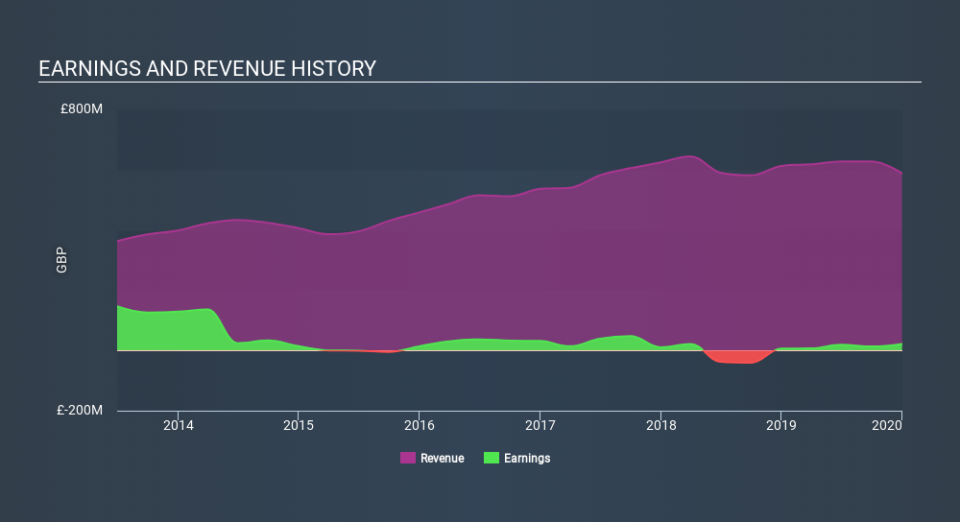Does Manchester United plc (NYSE:MANU) Have A Particularly Volatile Share Price?

Anyone researching Manchester United plc (NYSE:MANU) might want to consider the historical volatility of the share price. Modern finance theory considers volatility to be a measure of risk, and there are two main types of price volatility. The first category is company specific volatility. This can be dealt with by limiting your exposure to any particular stock. The second type is the broader market volatility, which you cannot diversify away, since it arises from macroeconomic factors which directly affects all the stocks on the market.
Some stocks are more sensitive to general market forces than others. Beta is a widely used metric to measure a stock's exposure to market risk (volatility). Before we go on, it's worth noting that Warren Buffett pointed out in his 2014 letter to shareholders that 'volatility is far from synonymous with risk.' Having said that, beta can still be rather useful. The first thing to understand about beta is that the beta of the overall market is one. A stock with a beta greater than one is more sensitive to broader market movements than a stock with a beta of less than one.
Check out our latest analysis for Manchester United
What we can learn from MANU's beta value
Given that it has a beta of 0.83, we can surmise that the Manchester United share price has not been strongly impacted by broader market volatility (over the last 5 years). If history is a good guide, owning the stock should help ensure that your portfolio is not overly sensitive to market volatility. Share price volatility is well worth considering, but most long term investors consider the history of revenue and earnings growth to be more important. Take a look at how Manchester United fares in that regard, below.
How does MANU's size impact its beta?
With a market capitalisation of US$2.7b, Manchester United is a pretty big company, even by global standards. It is quite likely well known to very many investors. When a large company like this trades with a low beta value, it is often because there is some other systemic factor influencing the share price. For example, commodity prices might influence a mining company strongly, while expectations around dividend payments (and capital expenditure requirements) might have a big impact on utilities.
What this means for you:
Since Manchester United is not heavily influenced by market moves, its share price is probably far more dependent on company specific developments. It could pay to take a closer look at metrics such as revenue growth, earnings growth, and debt. In order to fully understand whether MANU is a good investment for you, we also need to consider important company-specific fundamentals such as Manchester United’s financial health and performance track record. I urge you to continue your research by taking a look at the following:
Future Outlook: What are well-informed industry analysts predicting for MANU’s future growth? Take a look at our free research report of analyst consensus for MANU’s outlook.
Past Track Record: Has MANU been consistently performing well irrespective of the ups and downs in the market? Go into more detail in the past performance analysis and take a look at the free visual representations of MANU's historicals for more clarity.
Other Interesting Stocks: It's worth checking to see how MANU measures up against other companies on valuation. You could start with this free list of prospective options.
If you spot an error that warrants correction, please contact the editor at editorial-team@simplywallst.com. This article by Simply Wall St is general in nature. It does not constitute a recommendation to buy or sell any stock, and does not take account of your objectives, or your financial situation. Simply Wall St has no position in the stocks mentioned.
We aim to bring you long-term focused research analysis driven by fundamental data. Note that our analysis may not factor in the latest price-sensitive company announcements or qualitative material. Thank you for reading.

 Yahoo Finance
Yahoo Finance 
